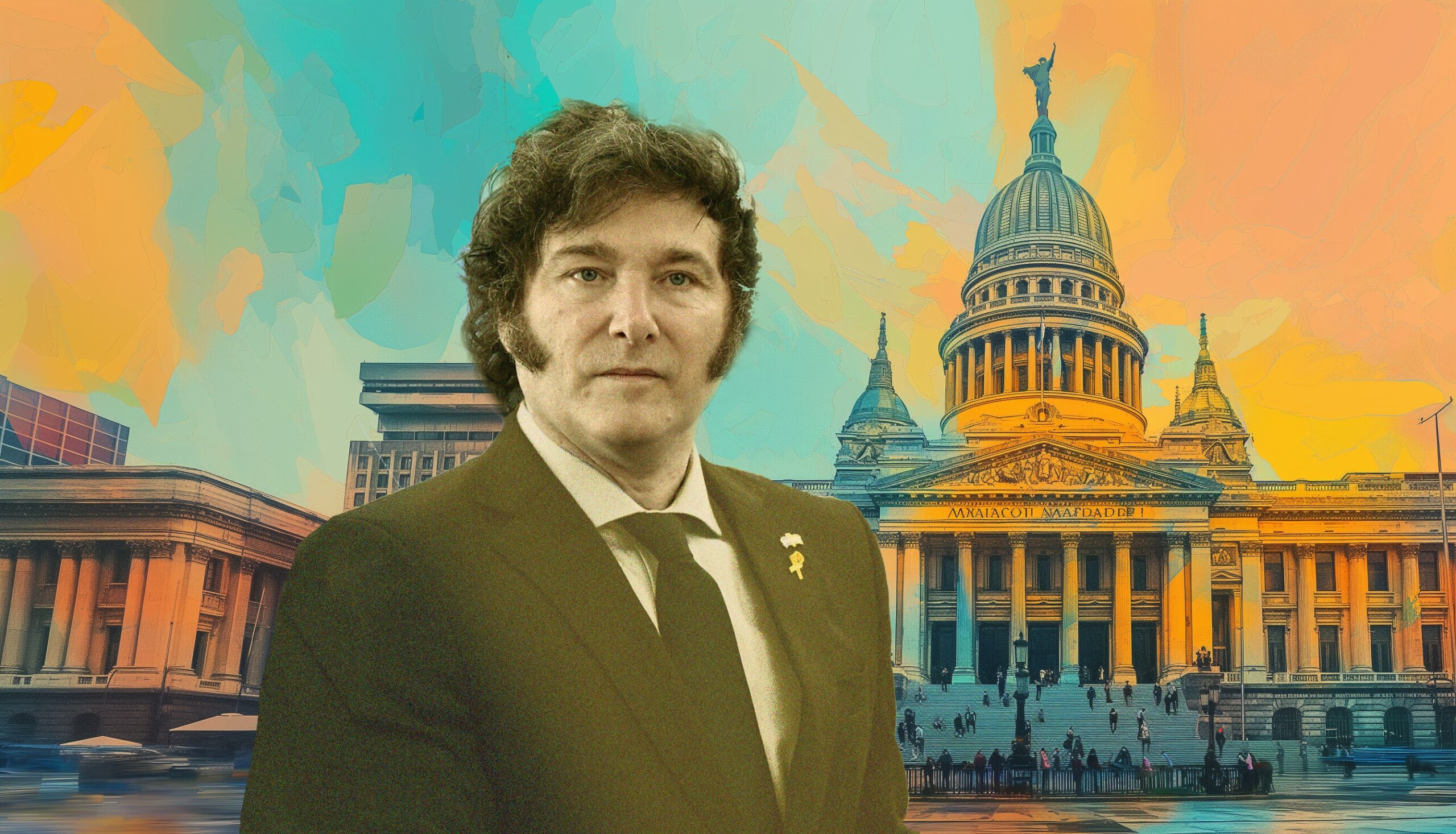Summary: Once one of the world’s wealthiest nations, Argentina has suffered economic decline since the early 20th century. Argentina’s inflation and economic stagnation have led to higher time prices for basic commodities. The election of President Milei brings hope for economic revival by encouraging entrepreneurship and reducing state control, potentially restoring Argentina’s former economic power.
It’s hard to find a country that is worse off today than it was in 1980. But Argentina makes the list. Argentina was one of the richest countries on Earth in the early 1900s. Then the Peronists gained control of the government. Free markets and entrepreneurs were suffocated by bureaucrats and taxes. When politicians maxed out on taxes, they started printing money. The results were predictable. Capital and talent fled along with growth in abundance. Not only has Argentina suffered massive inflation, but its ability to create wealth has also stagnated.
Measuring Abundance with Time
Economic growth can be measured with time. A time price denotes the time it takes to earn the money to buy a product. If you are earning $20 an hour and a pizza costs $20, the time price is one hour, or 60 minutes. If your income goes up to $25 an hour and the pizza price stays the same, the time price is now 0.8 hours, or 48 minutes. For the time it took to earn one pizza, you now get 1.25 pizzas. Your personal pizza abundance has increased by 25 percent. As long as hourly wages increase faster than prices, time prices decrease, which means personal abundance increases.
As we catalog in our book Superabundance, this has been the case for most products in most countries for the last four decades. Except for Argentina.
We compared the time prices of 50 basic commodities from 1980 to 2023 for Argentina and eight other countries. The average time prices had fallen significantly in eight of the nine countries. Argentina was the exception. Time prices are actually higher in Argentina today than they were in 1980.
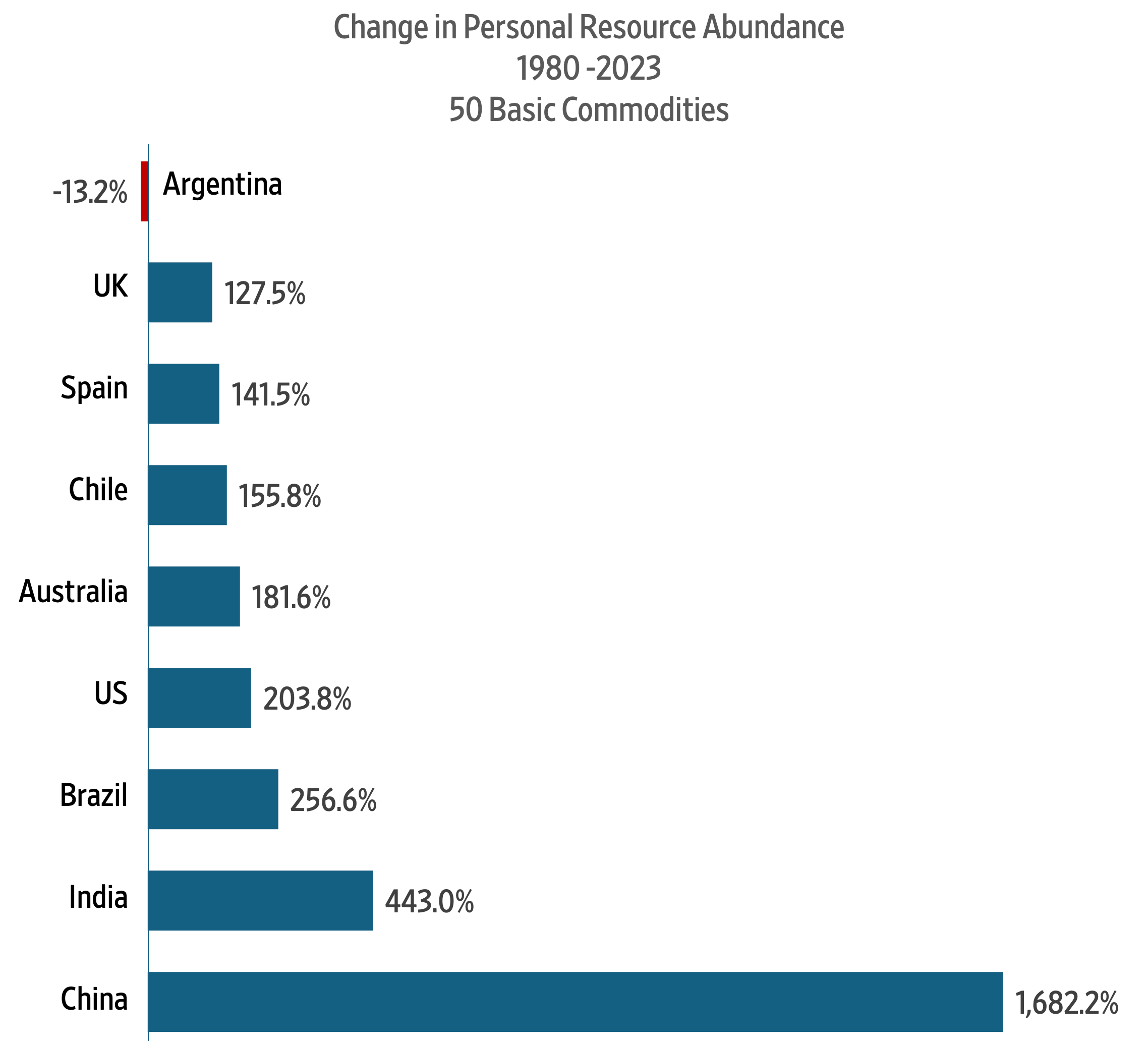
The trend lines indicate that markets experience temporary ups and downs, but the longer-term trends are all positive. Except for Argentina.
Percentage Change in Personal Resource Abundance, 1980–2023
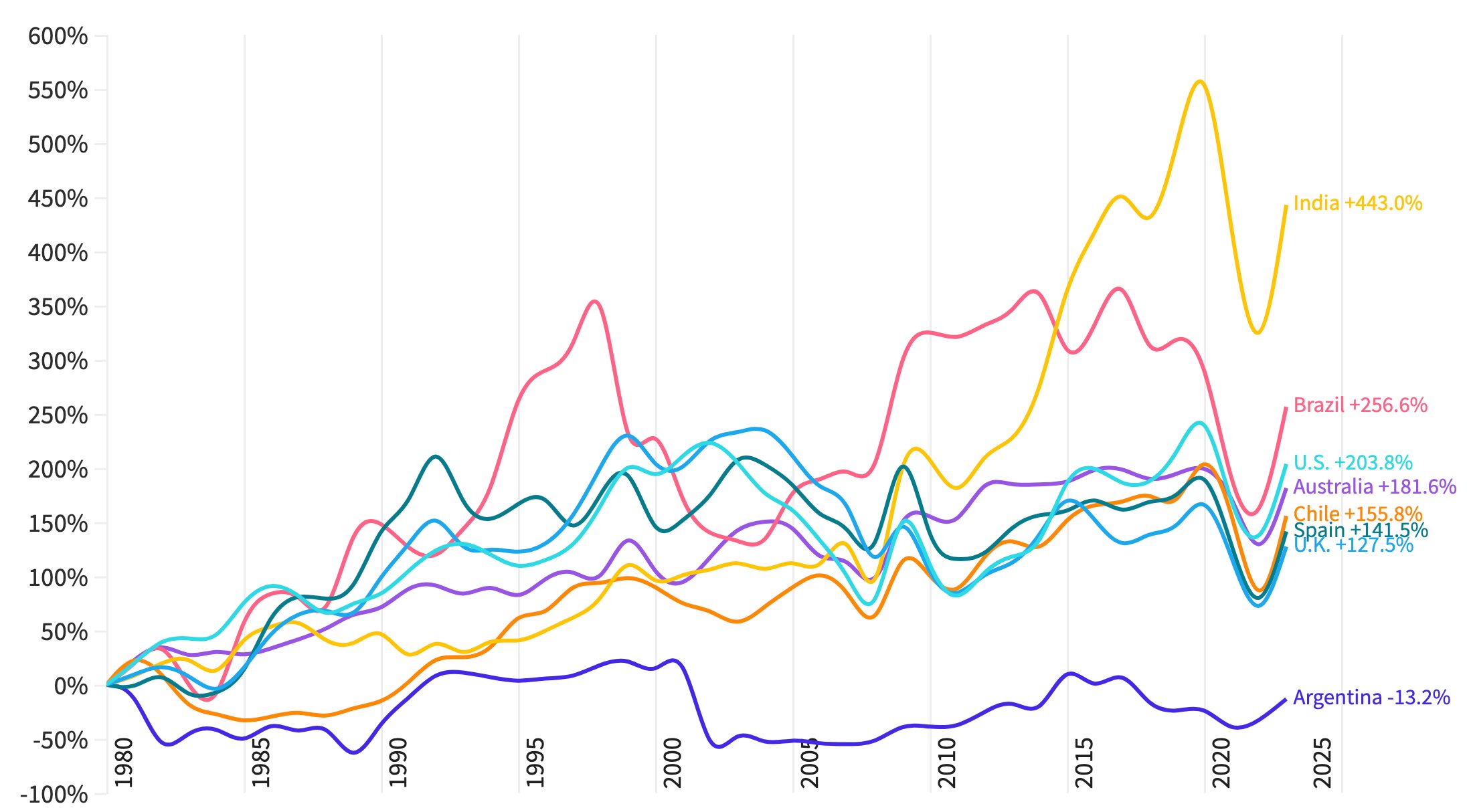
Note: Capitalism replaced Marxism in China in the early 1980s. The results were astonishing.
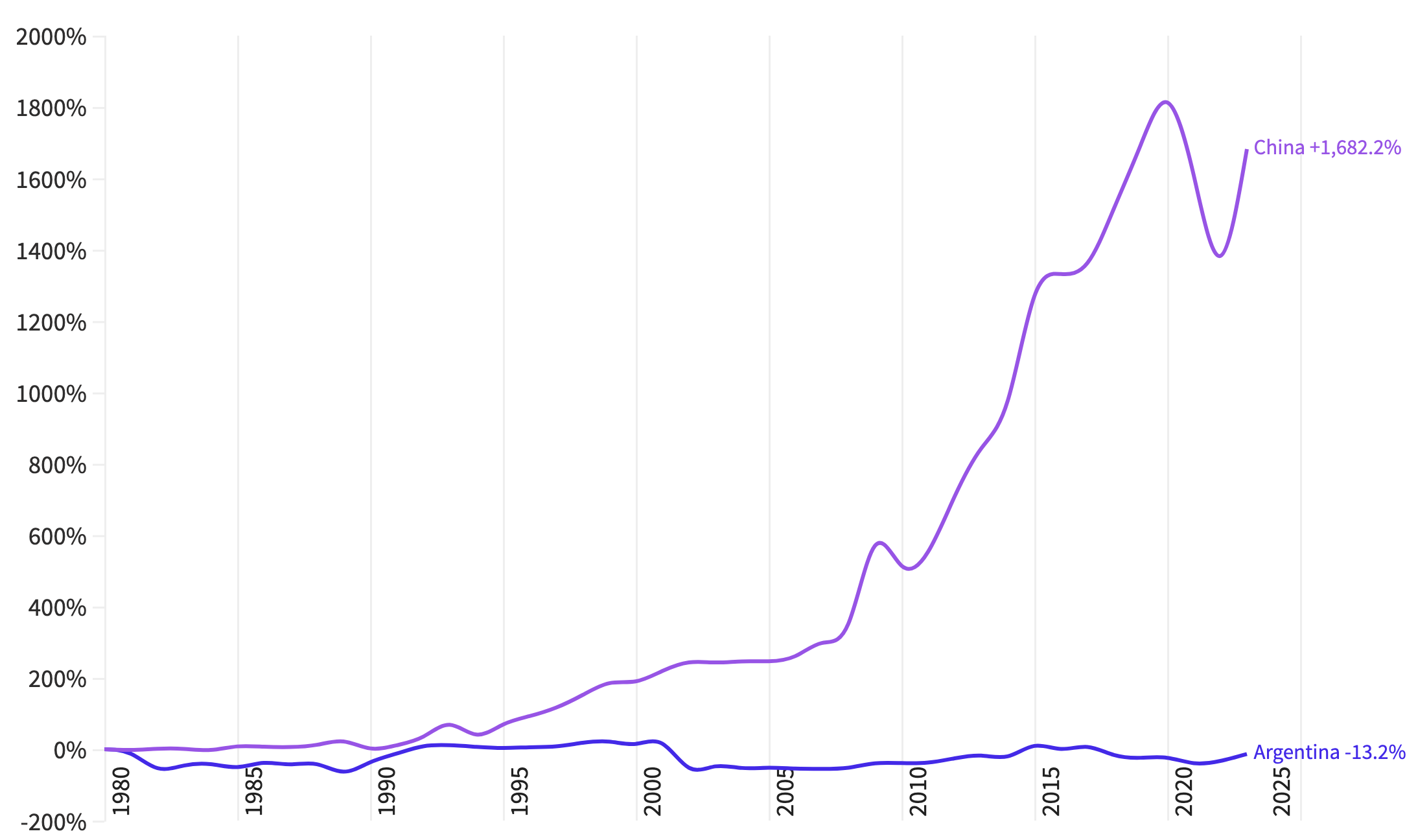
Enter Javier Gerardo Milei. With the election of Milei as the new president last year, maybe Argentina now has a chance to restore its former position as an economic power. In 12 months, the Argentina stock market index (AR: SPMERVAL) has grown 366.05 percent, while the US Dow Jones Industrial Average (DJIA) has only increased 19.18 percent. It looks like entrepreneurs are welcome back in Buenos Aires.
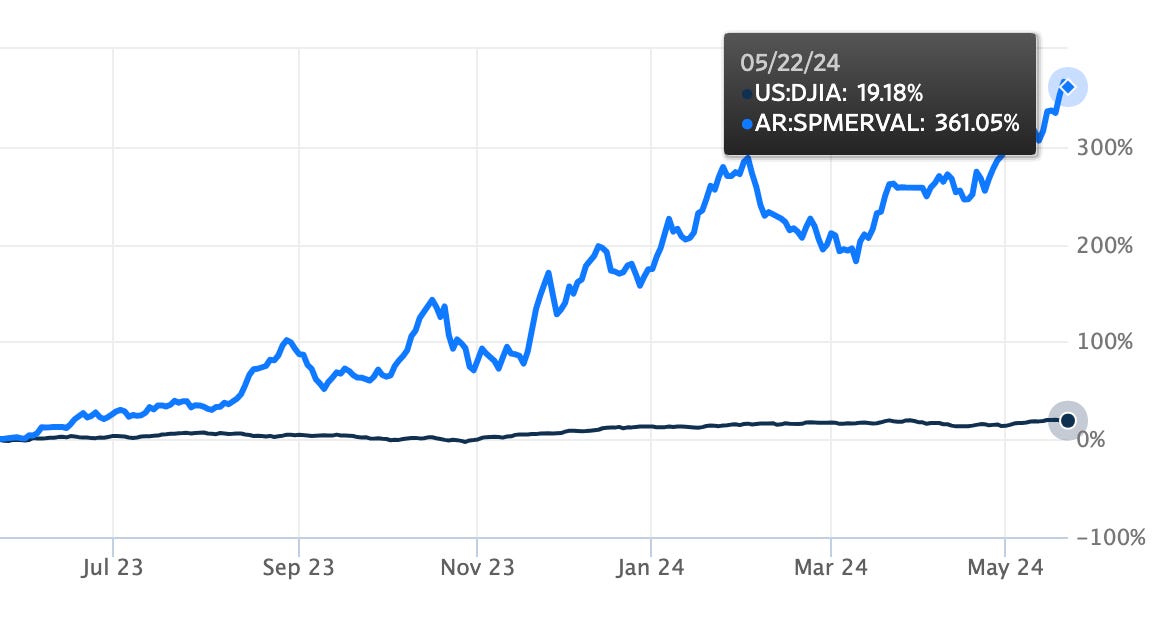
A great new book on the importance of entrepreneurship from the Chinese economics professor Weiying Zhang, Re-Understanding Entrepreneurship: What It Is and Why It Matters, could dramatically help Argentina reactivate its entrepreneurs and innovators and inspire the world. All innovation is the product of entrepreneurship, and entrepreneurs cannot exist under state control, government ownership, and excessive bureaucracy. Entrepreneurs attempt to maximize value creation. Bureaucrats, on the other hand, tend to maximize the costs of entrepreneurship. Unlike entrepreneurs, bureaucrats bear little of the costs of making mistakes.
Milei understands that capitalism activates entrepreneurs. The future is really a choice between entrepreneurs and free markets versus bureaucrats and politics. Argentina once again has the opportunity to stop flatlining and prosper. How many Elon Musks, Steve Jobses, and Jensen Huangs in Argentina are waiting to blossom and flourish under a new birth of freedom? Milei won because he was able to articulate what had caused Argentina’s demise and a vision for how it can be revitalized. Words and chainsaws and courage. Buena suerte to our friends in Buenos Aires.

